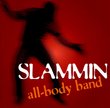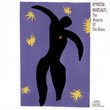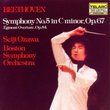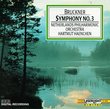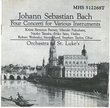| All Artists: Anton Bruckner, Dennis Russell Davies, Bruckner Orchester Linz Title: Bruckner: Symphony No. 8 Members Wishing: 0 Total Copies: 1 Label: Arte Nova Classics Original Release Date: 1/1/2007 Re-Release Date: 6/14/2005 Genre: Classical Style: Symphonies Number of Discs: 1 SwapaCD Credits: 1 UPC: 723721121358 |
Search - Anton Bruckner, Dennis Russell Davies, Bruckner Orchester Linz :: Bruckner: Symphony No. 8
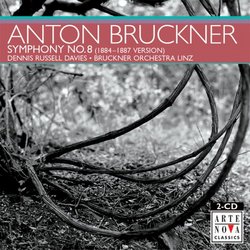 | Anton Bruckner, Dennis Russell Davies, Bruckner Orchester Linz Bruckner: Symphony No. 8 Genre: Classical
![header=[] body=[This CD is available to be requested as disc only.]](/images/attributes/disc.png?v=430e6b0a) ![header=[] body=[This CD is available to be requested with the disc and back insert.]](/images/attributes/disc_back.png?v=430e6b0a) ![header=[] body=[This CD is available to be requested with the disc and front insert.]](/images/attributes/disc_front.png?v=430e6b0a) ![header=[] body=[This CD is available to be requested with the disc, front and back inserts.]](/images/attributes/disc_front_back.png?v=430e6b0a) |
Larger Image |
CD DetailsSimilarly Requested CDs
|
CD ReviewsThe Road (Partly) Not Taken William Michaels | Hillsborough, NJ United States | 04/09/2007 (5 out of 5 stars) "I have been a devotee of Bruckner's 8th Symphony for almost 50 years. During most of that time, I have held that since Bruckner was still learning how to write symphonies well into his sixties, the latest version of any given symphony is the one to listen to. Although I still believe this, I no longer believe its corollary, that one should not bother with performances of the earlier versions. Davies and the Bruckner Symphony of Linz (where is the Stravinsky Symphony of LA?) do a fine job overall, and a fine job of convincing me that many of Bruckner's discarded passages are worth listening to in their own right." Classics Today Had This To Say Record Collector | Mons, Belgium | 04/06/2009 (5 out of 5 stars) "Spare a twinge of sympathy for the Bruckner Orchestra Linz. Unless you're a brass player, Bruckner is one of the least fun composers to play, though they perform him very well, and with evident pride. Davies has opted for the original, inferior version of the Eighth Symphony, with that silly first-movement coda, extra-repetitious scherzo, less-effective climax of the adagio, and its fuzzier scoring overall. On the plus side, you get the music that Nowak left out of the third and fourth movements--but this only amounts to some 50 bars, and the Haas edition of the revised version retains them. However, if you want Bruckner's first thoughts, then this live event presents them as persuasively as any.
Davies really has the measure of the music, offering a broad account of the first movement with powerful climaxes, but a swift, lively rendition of the ensuing scherzo, which suits its unrevised character better than a slower, heavier approach. Both the adagio and finale have the necessary weight, but they never drag. The orchestral brass understands what Bruckner needs: a majestic chorale but plenty of timbral differentiation between horns, trumpets, and trombones. This gives the opening of the finale an impressive bite without excessive crudeness. The audience is almost totally silent and the sonics are well-balanced, though just a touch bright. Altogether, this set stands with Tintner on Naxos as a prime recommendation for this edition of the symphony. " |

 Track Listings (2) - Disc #1
Track Listings (2) - Disc #1

